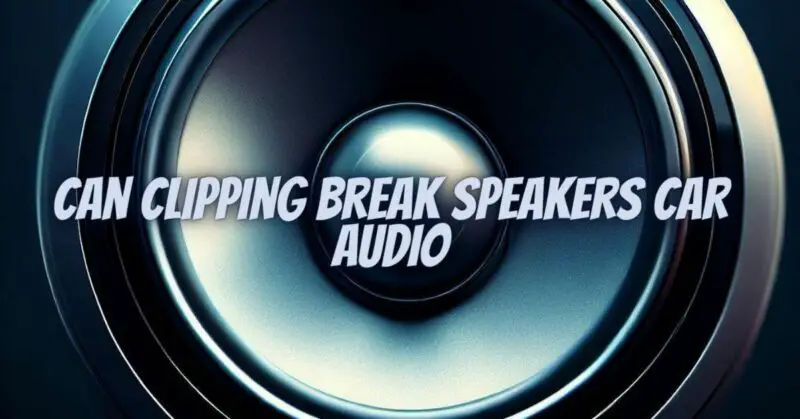Yes, clipping can break car audio speakers. Clipping occurs when an amplifier is trying to produce more power than it is capable of. This results in the amplifier clipping the audio signal, which means that the signal is distorted. The distortion caused by clipping can damage the speakers.
There are a few different ways that clipping can damage car audio speakers:
- Overheating: Clipping can cause the speakers to overheat. This is because the speakers are working harder than they are designed to work. Overheating can damage the speaker cones and coils.
- Mechanical damage: The distortion caused by clipping can also cause mechanical damage to the speakers. For example, the clipping can cause the speaker cones to move too far, which can damage the cones or the surrounds.
- Electrical damage: In severe cases, clipping can cause electrical damage to the speakers. This can happen if the clipping causes the amplifier to send too much power to the speakers.
Clipping is especially dangerous for tweeters, as tweeters are more delicate than woofers and are more susceptible to damage.
Here are a few things you can do to avoid clipping in your car audio system:
- Make sure that your amplifier is powerful enough to handle the speakers’ power requirements.
- Set the amplifier gain properly.
- Don’t drive the speakers too hard.
If you are not sure how to set the amplifier gain properly, or if you are not sure whether or not the speakers are clipping, it is always best to consult with a qualified audio professional.
Here are some tips for preventing car audio speaker damage:
- Avoid clipping. Clipping is the most common cause of speaker damage, so it is important to avoid it.
- Don’t drive the speakers too hard. If you are driving the speakers too hard, you will hear distortion. This is a sign that the speakers are being overloaded and could be damaged.
- Use a subwoofer. A subwoofer can help to take some of the load off of the main speakers, which can help to prevent damage.
- Place the speakers in a good location. Speakers should be placed where they can produce good sound without being overdriven.
- Keep the speakers clean. Dust and dirt can damage the speakers, so it is important to keep them clean.
If you take care of your car audio speakers, they will last for many years.
Here are some additional tips for avoiding clipping in your car audio system:
- Use a high-pass filter to roll off the bass frequencies to the speakers that cannot handle them. This will help to prevent the speakers from being overloaded.
- Use an equalizer to adjust the frequency response of the system. This can help to prevent certain frequencies from being overdriven.
- Use a limiter to prevent the signal from clipping. A limiter will reduce the level of the signal before it reaches the amplifier.
If you are serious about protecting your car audio speakers, you should consider using a combination of these techniques.


